Ben Wheatley’s 2020 adaptation of Daphne du Maurier’s classic gothic romance novel Rebecca contains some departures both from the original book, and from the famous 1940 adaptation by Alfred Hitchcock.
The heart of the story remains the same: a naive young woman from a humble background (played by Joan Fontaine in Hitchcock’s film, and by Lily James in the 2020 adaptation) meets and falls in love with a brooding widower, Maxim de Winter (played by Laurence Olivier in 1940, and by Armie Hammer in Wheatley’s film). They marry after a whirlwind romance, but when the second Mrs. de Winter returns to Maxim’s stately home of Manderley, she finds herself oppressed and tormented by the lingering influence of his formidable first wife, Rebecca.
Existing in the shadow of an Alfred Hitchcock classic isn’t easy, which may be one of the reasons why the Rebecca remake has been quite poorly reviewed. To its credit, however, the 2020 adaptation doesn’t try to copy Hitchcock’s film and instead makes some changes to set it apart from the many, many adaptations that have gone before it. Here are Rebecca‘s biggest differences to du Maurier’s book and Hitchcock’s film.
Maxim and Mrs. de Winter’s Relationship Is Healthier
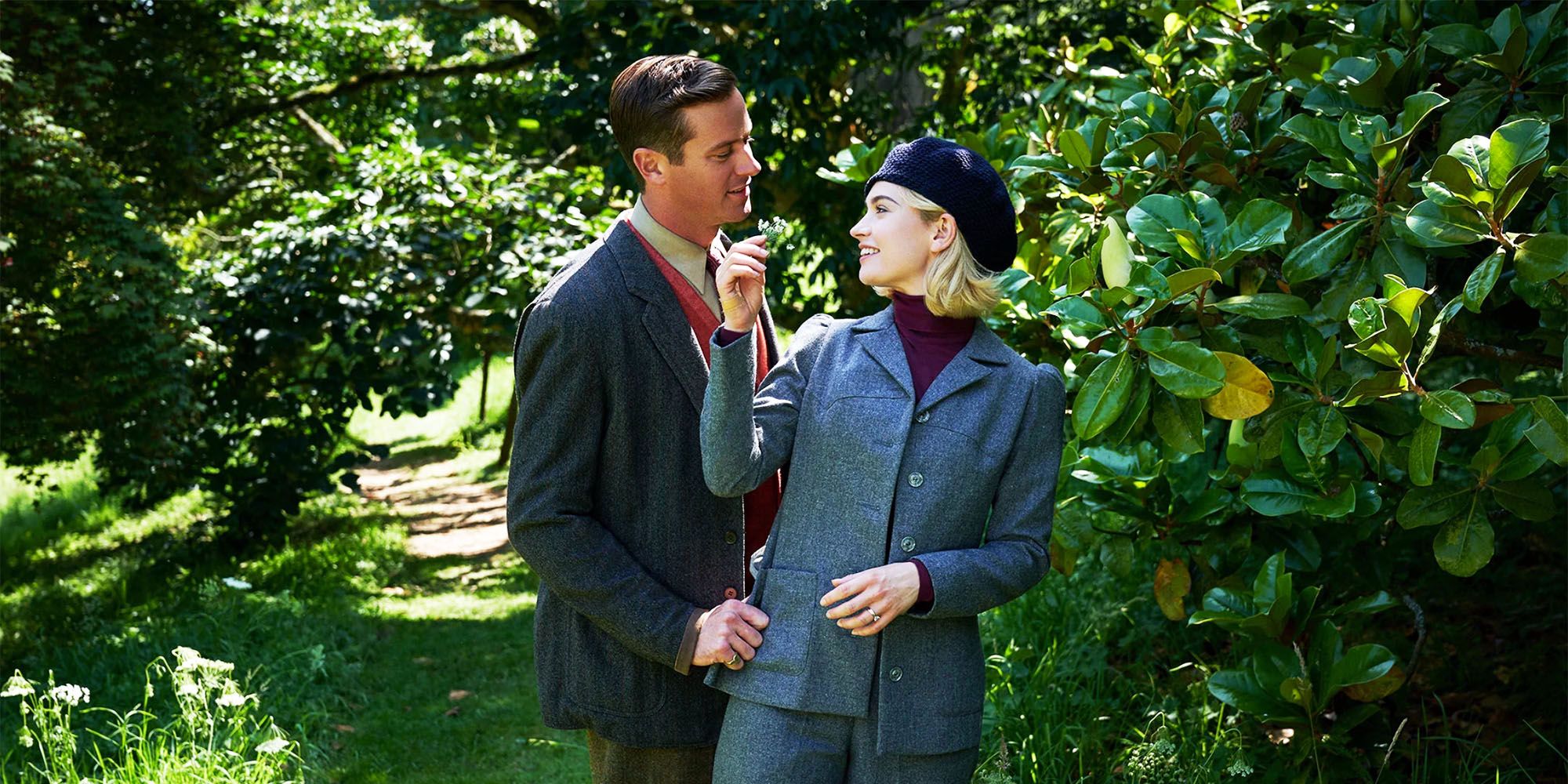
The unnamed protagonist of Rebecca is said to be the antithesis of everything Rebecca was: plain where the first Mrs. de Winter was beautiful, unaccomplished in hunting or sailing (her only talent is sketching, and she’s not even very good at that), and hailing from a lower-class background where the ninety pounds a year offered by Mrs. Van Hopper seems like a lot of money. Because of this, she doesn’t understand why a handsome, well-bred member of the aristocracy like Maxim de Winter would ever look twice at her. Though their marriage and happy honeymoon assuages some of these worries, they all come flooding back when she arrives at Manderley and everyone she meets seems to make it clear that she’s not up to Rebecca’s standard. This is not helped by Maxim’s brusque manner with her – calling her a “little idiot” after she confesses to accidentally breaking a valuable piece of china and trying to cover it up.
Wheatley’s Rebecca smooths away many of the rough edges of Maxim and Mrs. de Winter’s relationship, giving them steamy romances on the beach and a playful scene where Maxim slings his new wife over his shoulder to carry her over the threshold. His unconventional proposal – “I’m asking you to marry me, you little fool” – seems out of place in this relationship, and may have only been included because it’s such an iconic line. When the protagonist demurs in the book, saying she doesn’t belong in his world, Maxim angrily responds, “You are almost as ignorant as Mrs. Van Hopper, and just as unintelligent.” His thoughtlessly cutting remarks (he later acknowledges “I’m being rather a brute to you, aren’t I?“) don’t exactly fit the traditional model of a dashing and charming love interest, but that’s how Armie Hammer’s Maxim is rewritten for the 2020 film.
Lily James’s Mrs. de Winter Is More Confident
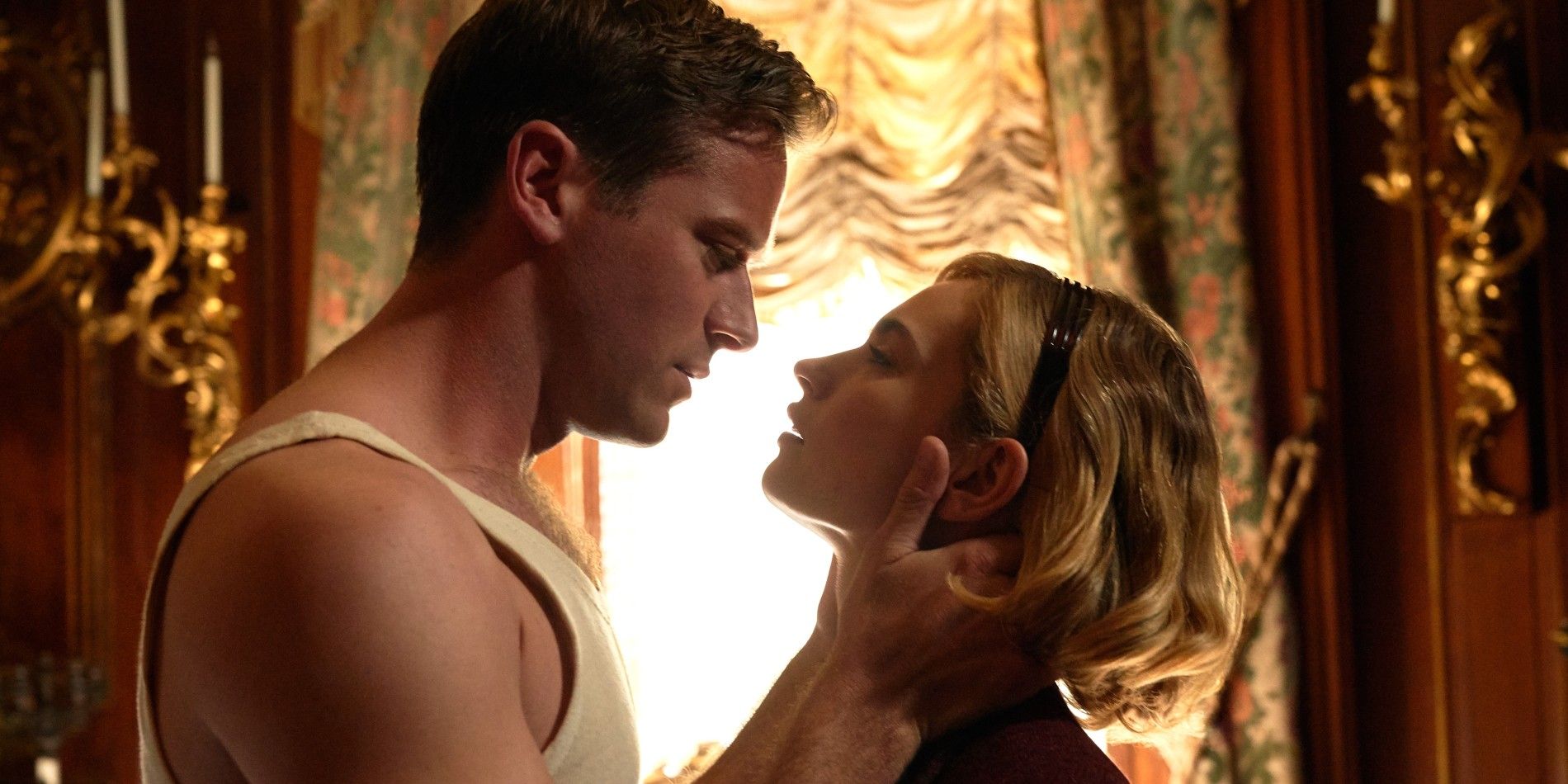
The warmer and kinder Maxim in the new Rebecca adaptation is tied up with another major difference to the novel and Hitchcock’s film: Mrs. de Winter herself. Crippled by low self-esteem and impostor syndrome, Fontaine’s version of the character creeps around Manderley like a burglar instead of a grand lady, and spends most of the film afraid to stand up to Mrs. Danvers. Conversely, James’s Mrs. de Winter is more confident and self-assured, confronting Mrs. Danvers on multiple occasions – including a scene where she barges in on the servants eating dinner and challenges the overbearing housekeeper in front of the entire staff.
The difference is particularly highlighted in the change made to Mrs. de Winter’s first meeting with Jack Favell. Whereas in the 2020 Rebecca she meets him on the driveway, in the book and Hitchcock film he catches her hiding after eavesdropping on his conversation with Mrs. Danvers. An amused Favell tells Mrs. Danvers, “All your precautions were in vain. The mistress of the house was hiding behind the door” – adding a dose of humiliation to an already frightening situation.
This change has been the most controversial among du Maurier devotees. Though it may have been an attempt to update the story by turning Mrs. de Winter into a strong female character with agency, rather than a wilting flower terrified of her own servants, the protagonist’s feelings of inferiority and unwillingness to stand up for herself are arguably an essential part of the tension in Rebecca. Her fear of Mrs. Danvers is what makes the moment when she finally stands up to the housekeeper – telling her “I am Mrs. de Winter now” – such a powerful moment. This scene, present in the Hitchcock film, was left out of the latest adaptation.
Maxim Didn’t Kill Rebecca In Hitchcock’s Film
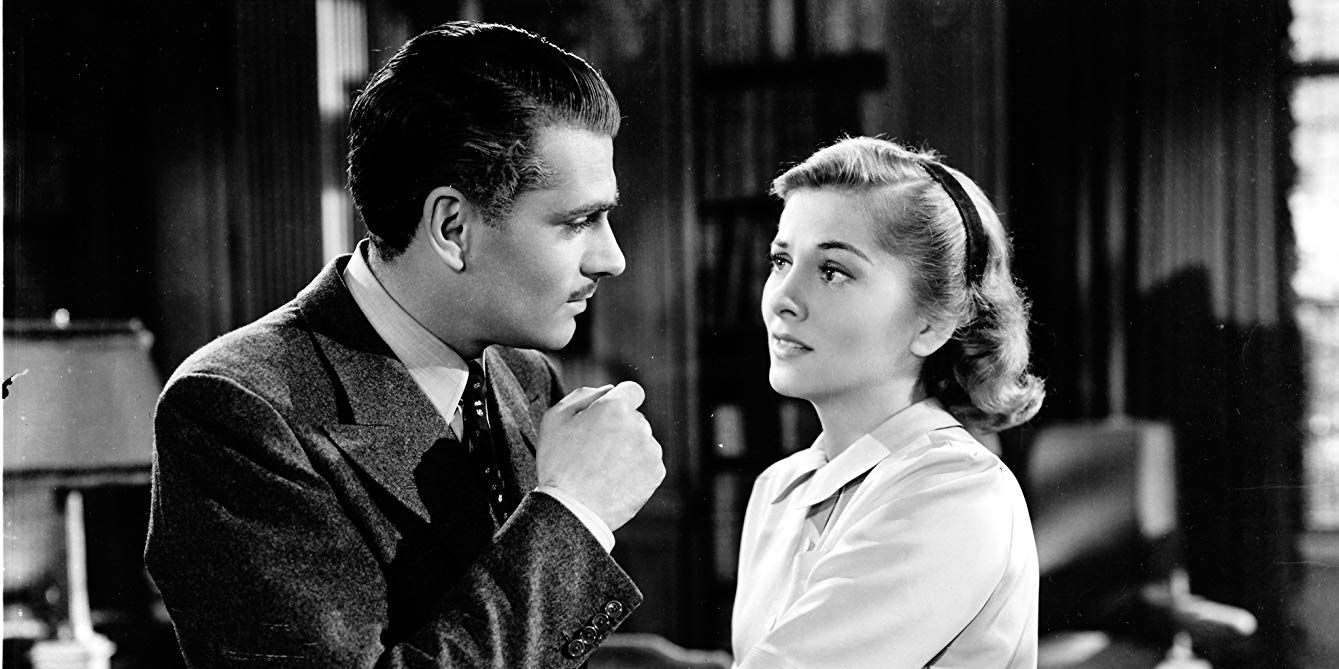
Netflix’s Rebecca is more faithful to du Maurier’s book than Hitchcock’s film in one respect: Maxim’s confession that he shot Rebecca in the heart and killed her, before putting her body in the boat and scuttling it to make it look like an accident. Hitchcock couldn’t have kept the novel’s original storyline intact because of the Hays Code, a set of moral guidelines that Hollywood films had to abide by at the time Rebecca was made. The Hays Code dictated that crime couldn’t be shown in a positive light, so the “happy” ending of Rebecca – in which Maxim gets away with the murder thanks to a presumption of suicide – had to be changed. Instead of shooting his first wife, Laurence Olivier’s Maxim explains that she fell and hit her head during their confrontation in the boathouse, dying accidentally. Free of the restrictions of the Hays Code, the circumstances of Rebecca’s death in Wheatley’s film are the same as in the book.
Maxim Doesn’t Get Arrested In The Original Story
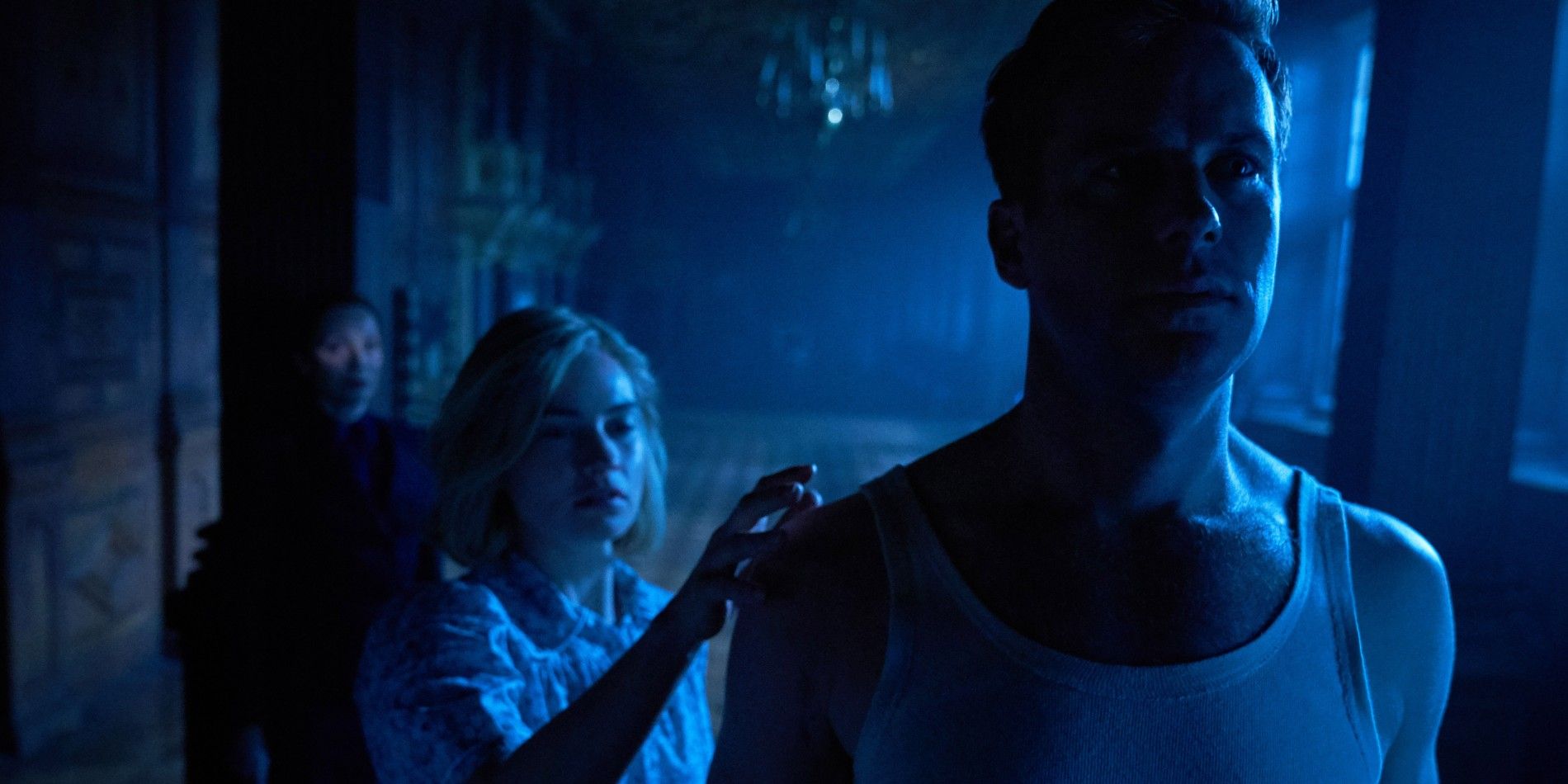
Coupled with Mrs. de Winter’s bolder personality in this new adaptation of Rebecca is a final act story change that allows her to take on an amateur detective role to save her husband. In the original story and Hitchcock’s film, Maxim responds to Jack Favell’s attempt at blackmail by calling the local magistrate, Colonel Julyan, and inviting him over to look at the note and hear what Favell has to say. The police are fundamentally on Maxim’s side and looking for any excuse to clear his name, and they view Favell as an untrustworthy individual (an aspect of the story’s prevalent class divisions). It’s a gamble for Maxim to call Favell’s bluff, but one that pays off after he and Mrs. de Winter take a trip down to London with Colonel Julyan to hear what Rebecca’s doctor has to say.
In Netflix’s Rebecca, Maxim rather foolishly tries to pay Favell off with a check for £10,000, which is then later presented in court. Maxim bribing someone to make incriminating evidence go away obviously doesn’t look good, so he is arrested. Whereas Mrs. de Winter only really serves as moral support in the original story (and conveniently faints when Maxim loses his temper in court), in the 2020 film she finds the doctor’s address herself, cons her way into his offices and retrieves Rebecca’s medical records before the police get there. Of all the changes made in the film, this is actually one of the less objectionable ones; a common criticism of both du Maurier’s book and Hitchcock’s story is that the final act starts to drag after the nature of Rebecca’s death is revealed and the plot transforms into a legal drama. Giving Mrs. de Winter more agency and raising the stakes by having Maxim arrested does at least keep things interesting.
Mrs. Danvers Doesn’t Drown Herself In The Original Story
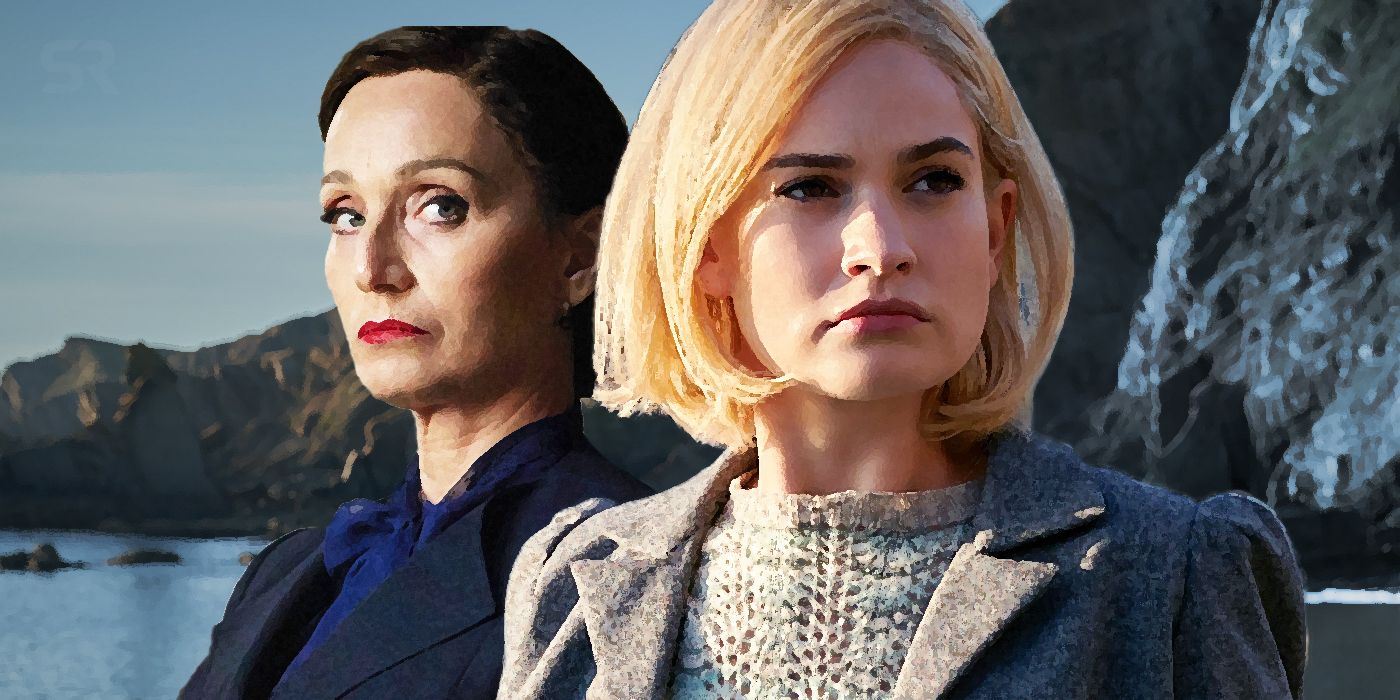
Both Hitchcock and Wheatley’s films go beyond the end of du Maurier’s novel, which concludes with Mr. and Mrs. de Winter driving towards Manderley and realizing that it’s on fire. The last that’s heard of Mrs. Danvers is that she packed up all her things, stripped her room and left Manderley, but the implication is that she set the house on fire as a parting tribute to her beloved Rebecca. Hitchcock’s adaptation has the second Mrs. de Winter still in the house when Mrs. Danvers sets the fire, but she has managed to get out by the time Maxim arrives. Mrs. Danvers is last seen in Rebecca’s room looking out of the window, before burning rafters fall on her and she’s killed.
The 2020 iteration of Rebecca alters the nature of Mrs. Danvers’ suicide. Instead of remaining in the house while it burns, she goes down to the cove to burn Rebecca’s boathouse as well. Mrs. de Winter goes down and tries to stop her, but Mrs. Danvers explains that Maxim took away from her the only person she ever loved. She jumps into the ocean and drowns in the same watery grave where her beloved Rebecca was found. It’s an ending that suits Kristin Scott Thomas’s version of Mrs. Danvers, who is slightly more sympathetic than Judith Anderson’s terrifying villain in Hitchcock’s film.
Rebecca Is Never Actually Shown In Hitchcock’s Film
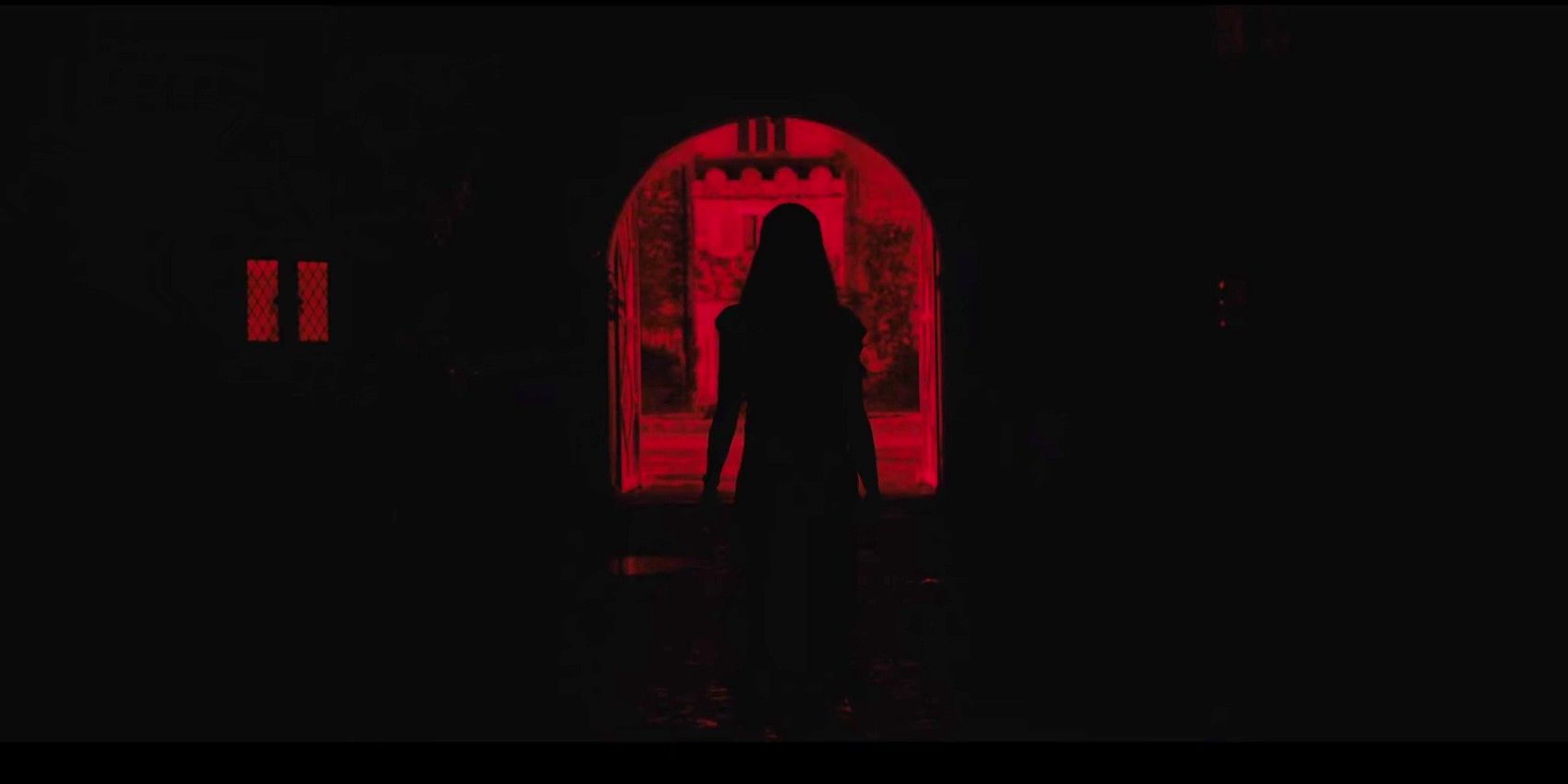
The odd quirk of the eponymous Rebecca is that she’s a villain who is never actually seen. There are no pictures of her around the house in Hitchcock’s film (an indication that Maxim may not miss her as much as the second Mrs. de Winter thinks he does), and no flashbacks featuring her. Wheatley’s film does show Rebecca in Mrs. de Winter’s dreams and visions – first striding towards Manderley in a red dress at the start, and then weaving her way through the house during the costume ball. Her face is never seen, but it does give her a more tangible presence than she has in the book and in Hitchcock’s film.




